Why African Blue Basil Is The Herb Your Kitchen's Been Missing!
Ready for something different? African Blue Basil is the beautiful and fragrant herb that your garden and kitchen is missing!
The African Blue Basil Plant
Have you ever heard of African blue basil? This highly versatile herb is native to East Africa and possesses an entirely different appearance and flavor compared to typical sweet basil. This type of basil is known for its striking appearance, with its leaves ranging from deep purple to green with purple veins, and its unique fragrance, which is a mix of traditional basil and a hint of camphor.
African blue basil, also known as 'Dark Opal', is a perennial herb that is different from traditional sweet basil in terms of its color and flavor. Its leaves have a unique blue-purple color which sets it apart from other herbs. It has a strong basil scent with a hint of mint and licorice. It is a hybrid variety of basil, being a cross between wild basil, camphor basil, and dark opal basil.
African Blue Basil is an attractive and versatile plant that is used for culinary, medicinal, and ornamental purposes. In the kitchen, its leaves can be used to add flavor to a wide range of dishes, including salads, soups, stews, and sauces. It is particularly well-suited for use in Thai and other Southeast Asian cuisines, where it is often used to flavor curries and other spicy dishes.
In addition to its culinary uses, African Blue Basil is also believed to have several health benefits. It is thought to have anti-inflammatory, anti-bacterial, and anti-fungal properties, and may help to lower blood pressure, improve digestion, and boost the immune system.
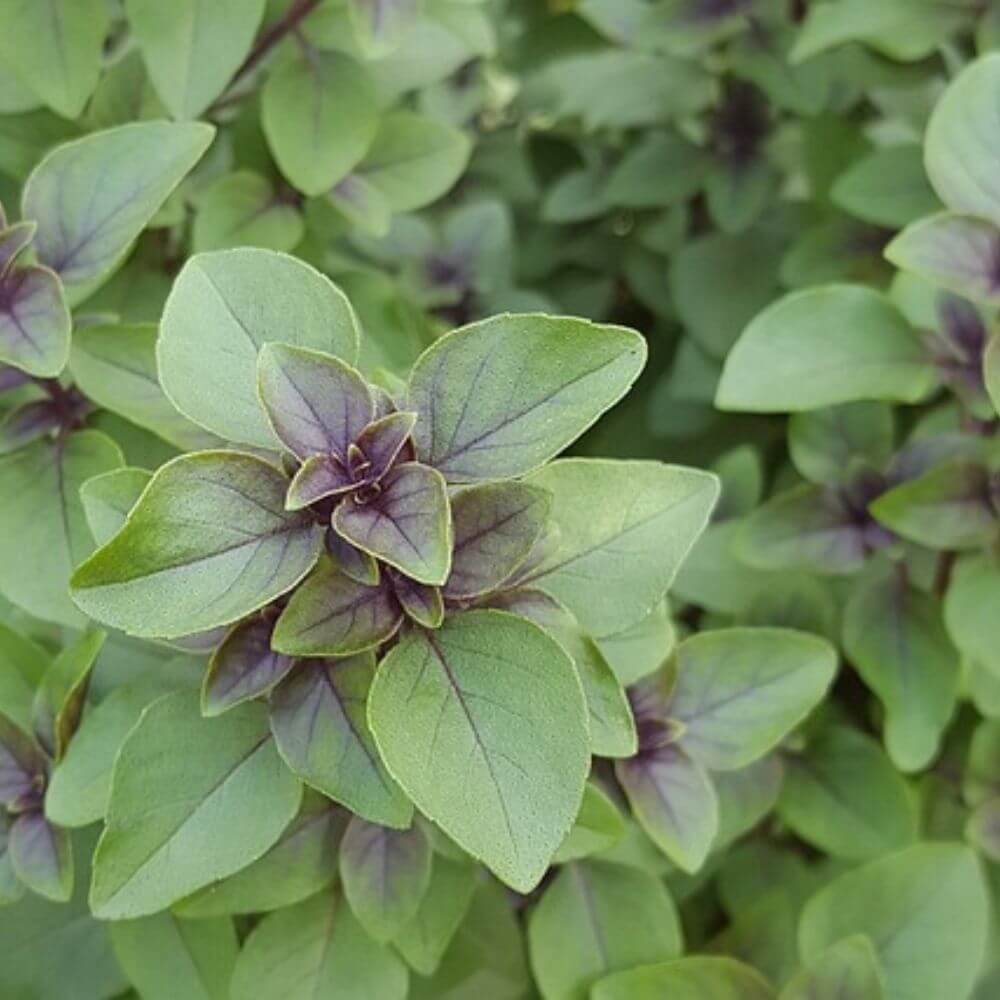
History and Culture
African blue basil has great cultural significance in East African countries such as Kenya, Tanzania, and Uganda. The plant has been used for centuries as a symbol of hospitality and welcoming in everyday life, weddings, and other important ceremonies. It is said that African blue basil represents community and togetherness because East African locals often utilize it for cooking during communal gatherings.
One example of its cultural use is in wedding ceremonies in East African countries. African blue basil is often used to make a wreath that is hung around the doorways to welcome wedding guests. These wreaths are called "mkeka," which is Swahili for "mat," as it symbolizes the welcoming of the bride and the groom into the community.
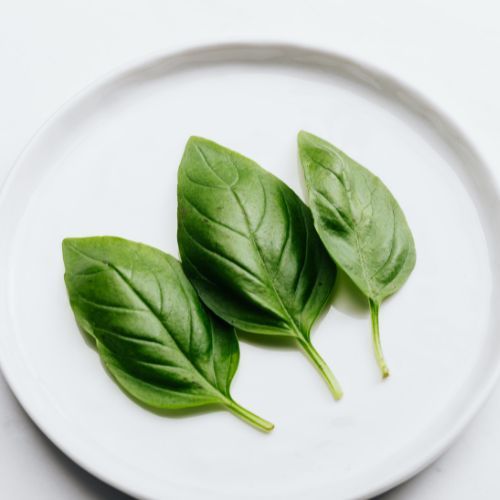
Culinary Uses
African blue basil has a unique flavor that is a blend of sweet basil, mint, and licorice. This makes it an excellent addition to both sweet and savory dishes. The edible herb has a captivating blue-purple color, which adds an extra aesthetic edge to any plate.
Common culinary uses of African basil include salads, dressings, marinades, soups, and stews. It lends a subtle but complex flavor to any dish, giving it an exciting twist. Due to the herb's strong aroma, it is best used in small quantities, as a little goes a long way.
African blue basil flowers are a vibrant purple with a subtle flavor that can also be used to add an extra dimension to salads and other dishes.
These plants produce loads of fragrant leaves which are perfect for making infused oils or adding flavor to salad dressings. Infusing African basil leaves in olive oil can create a perfect marinade for chicken or fish with an added camphor-like aroma.
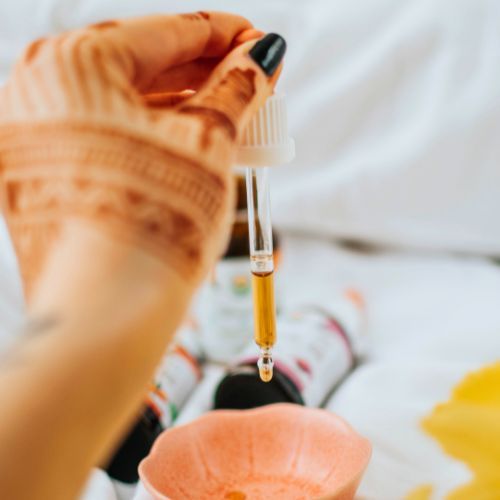
Medicinal Benefits
- Digestive aid: African basil is known to soothe digestive issues such as indigestion and bloating. It contains volatile oils that help to relax the muscles of the digestive tract and reduce inflammation.
- Anti-inflammatory properties: African basil has potent anti-inflammatory effects that can aid in a variety of illnesses. The herb's oil contains eucalyptol, which can help reduce inflammation in the body and, in turn, alleviate symptoms such as pain and fever.
- Immune System Booster: African basil may help boost the immune system due to its high concentration of antioxidants. Antioxidants protect the body's cells against damage from harmful free radicals and improve the body's natural defense mechanisms.
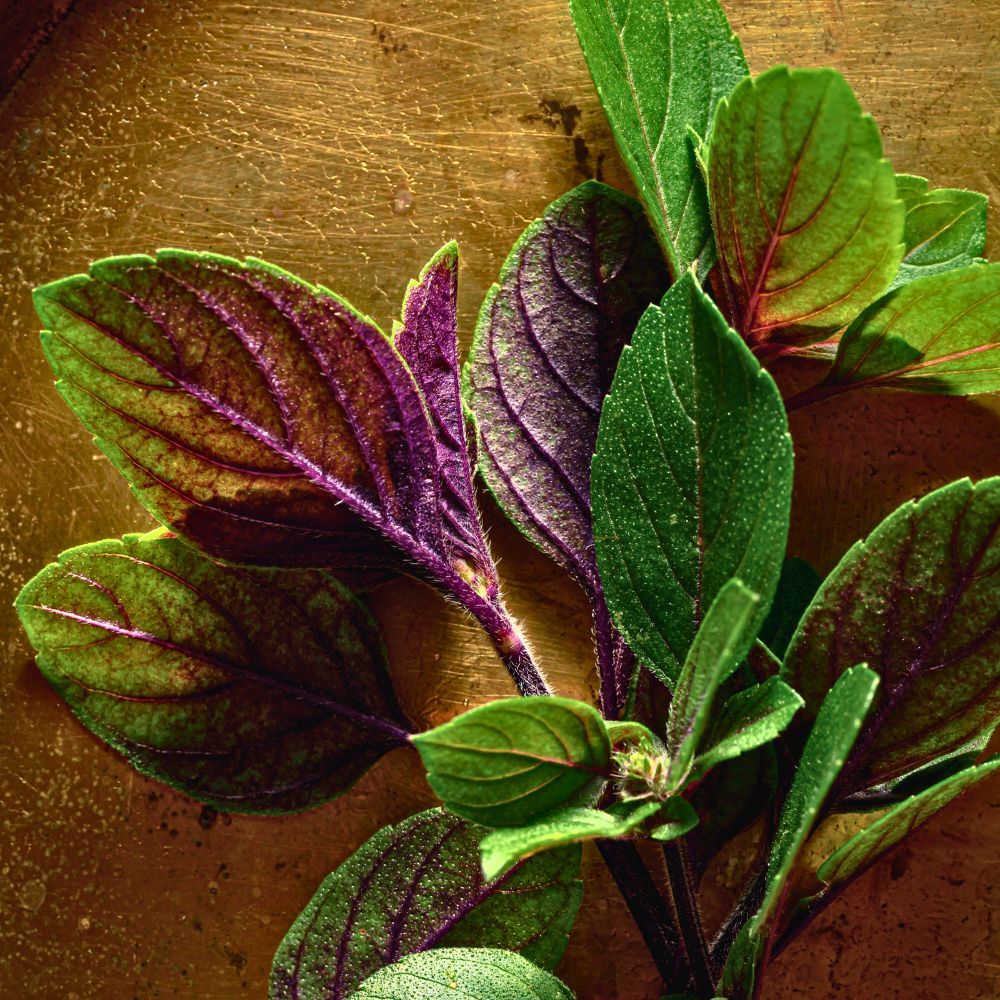
Flavor Profile and Aesthetic Value
African blue basil plants have a unique flavor profile, providing a blend of sweet basil tones, licorice, camphor, and mint undertones. If you're looking to switch up your cooking game and try something new, adding a touch of African blue basil will undoubtedly work wonders.
The strongest flavor profile comes from the leaves, while the flowers of the herb have a more subtle flavor.
Apart from its flavor, African basil's aesthetics give it another edge over its counterpart herbs. Its unique blue-purple leaves make it a great addition to any garden or indoor space, providing a splash of color and making it an excellent foliage plant for those with a green thumb.
Growing and Caring for African Blue Basil Plants
Despite its exotic origin, African basil is relatively down-to-earth when it comes to growing and maintenance.
African basil is a popular ornamental plant, with its colorful dark purple leaves and attractive flowers making it a popular choice for gardens and indoor planters. It is relatively easy to grow and care for and can be propagated from stem cuttings or seeds.
African basil thrives in full sun and well-draining soil and should be watered moderately. They can propagate by rooting cuttings, making them an easy plant to grow and share with friends.
The herb thrives in Handpick the flowers and dead leaves to encourage healthy plant growth and harvest the leaves when they are young for the best flavor.
It is also known for its ability to repel insects due to its high concentration of essential oils which also has anti-inflammatory and anti-bacterial properties.
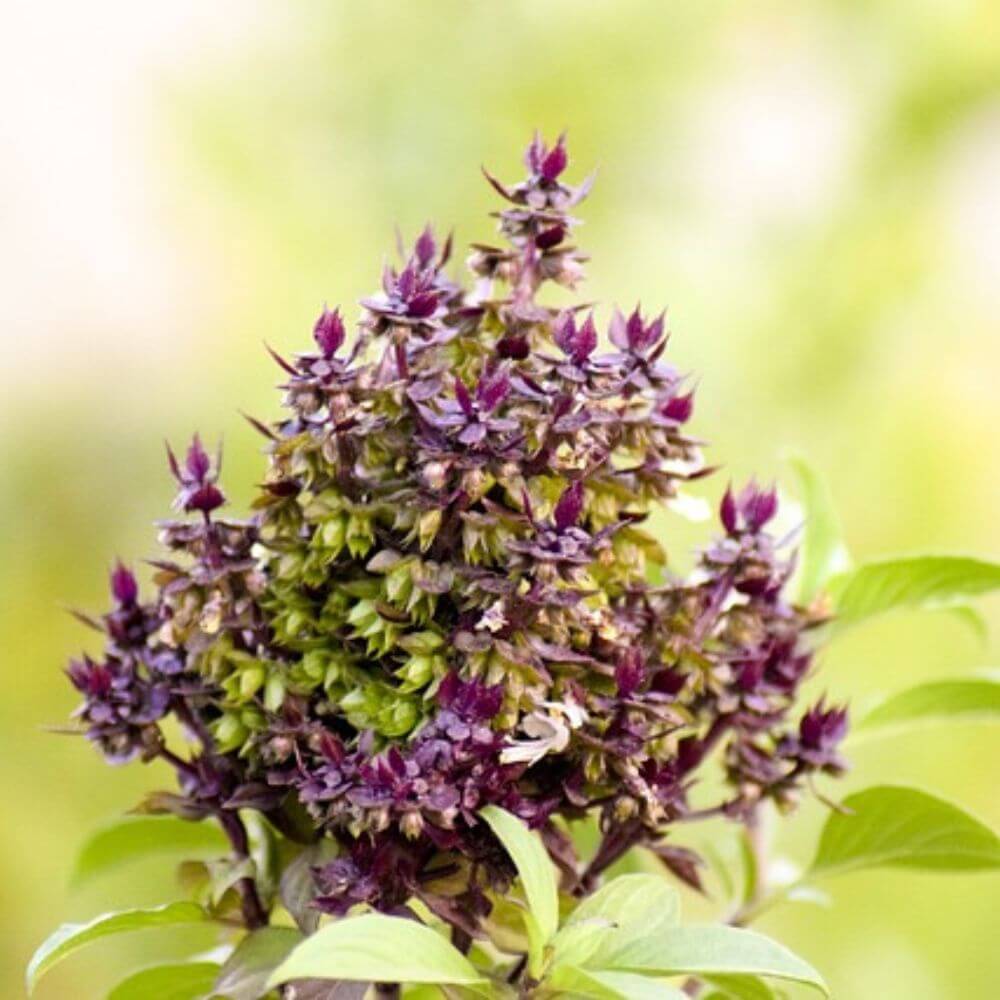
Conclusion
In conclusion, African blue basil is a highly versatile herb deriving from crossing camphor basil with dark opal basil. It offers multiple benefits, making it an excellent addition to both the kitchen and garden. Whether it's for culinary purposes or promoting overall health and wellness, African basil is sure to provide an extra kick to your day-to-day use.
Not only that but the herb's unique history and cultural significance provide another layer of intrigue and make it an excellent conversation piece. So, next time you come across this unique herb, why not give it a try? You never know - it might become your new favorite!
You Might Also Enjoy Reading This!
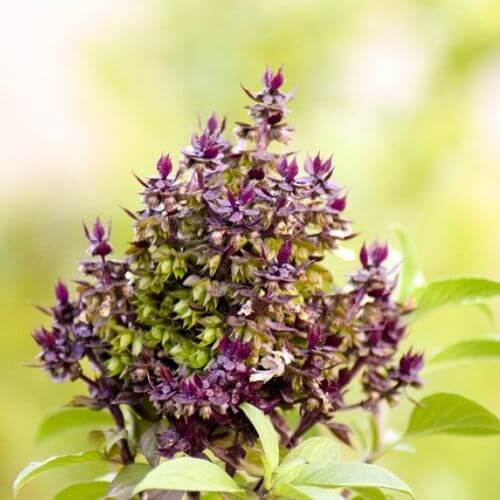
Disclaimer
Each of these products has been very carefully reviewed and selected by us at WellnessWishlist. All opinions in this article are our own, and we're proud to share them with you, however, all content is meant only to be informative and should not be taken as medical advice, nor used to diagnose, treat, and or prevent any health conditions. As Amazon associates, we may collect compensation from the affiliate links on this page, through qualifying purchases (that's how we stay in business). We truly hope you enjoy finding the next addition to your WellnessWishlist!


